A cost of living lesson at the 99p breakfast café
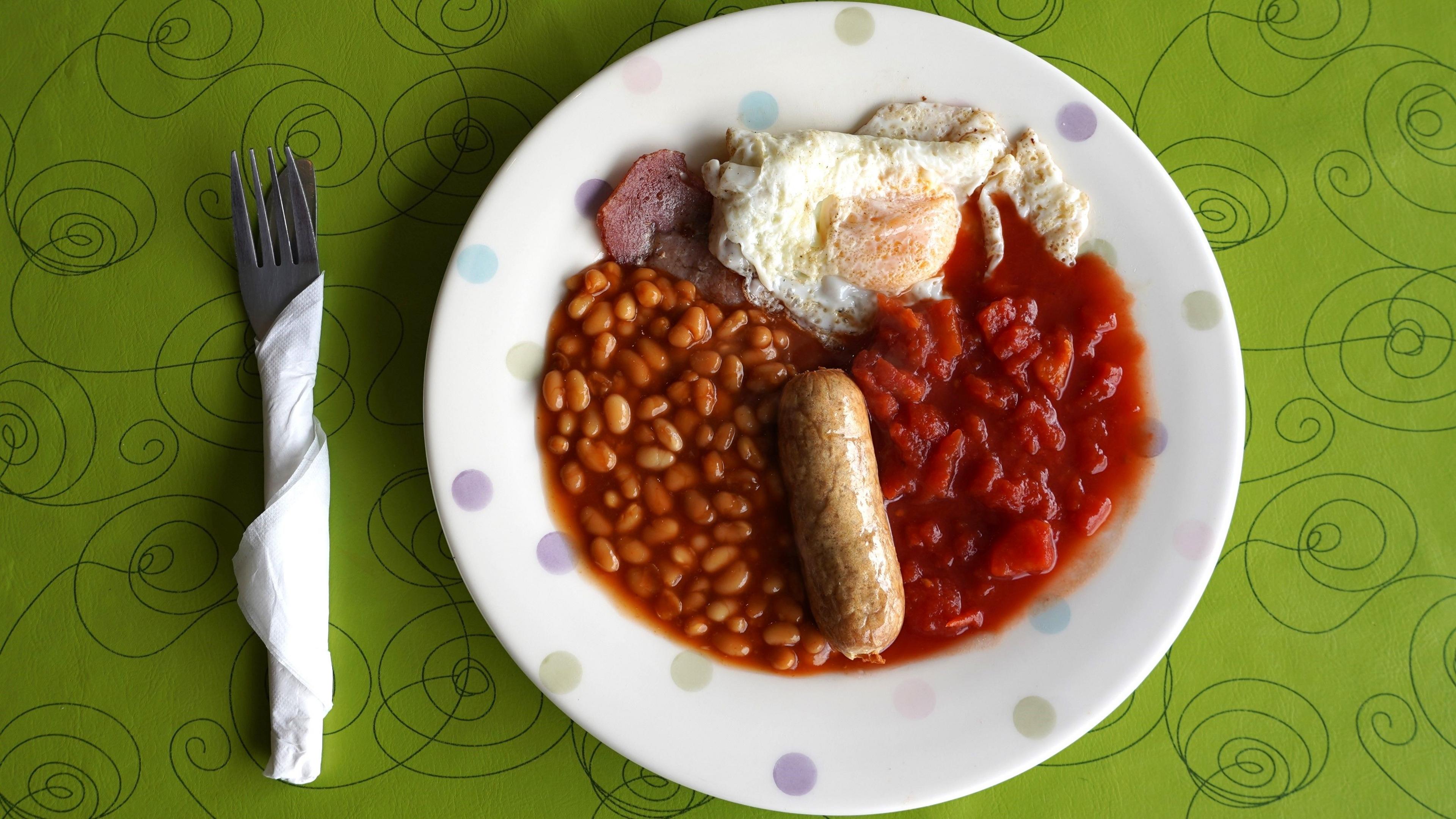
The 99p breakfasts feature a sausage, an egg, a piece of bacon, beans and tomatoes
- Published
The cost of living crisis has been an issue which has hit millions of people. Spiralling food and fuel prices have put an ever greater strain on household finances. BBC News headed to a café which has tried to help people beat the crunch to find out the real effects.
“We don’t make any money, we just manage”, says Nadine Grant.
She's the co-owner of the Tastee café in Gleadless, a working-class suburb of Sheffield.
As the cost of living crisis began to bite, Nadine and co-owner Alex Rowbotham did the opposite of what was expected; they introduced a cut-price offering.
Their small breakfast - one rasher of bacon, a sausage, a fried egg plus beans and tomatoes - was £3.50.
They slashed the price to 99p to try and offer people hot food at a price they could afford.
Despite bills and stock costs shooting up, Nadine, who has owned the business for seven years, was keen to keep the bargain brekkie.
'Doubling prices'
I ordered one and asked her to tell me about the challenges she faces.
“We sell about 100 eggs a day.
"They went crazy, nearly doubling in price,” she says, leaning on the counter fridge packed with of treats.
Her mortgage is now £900 a month, up from £300 last year, and she admits she finds it tough to cut back on food costs in the café.
“There’s nothing to cut back on. Customers know as soon as you do,” she says.
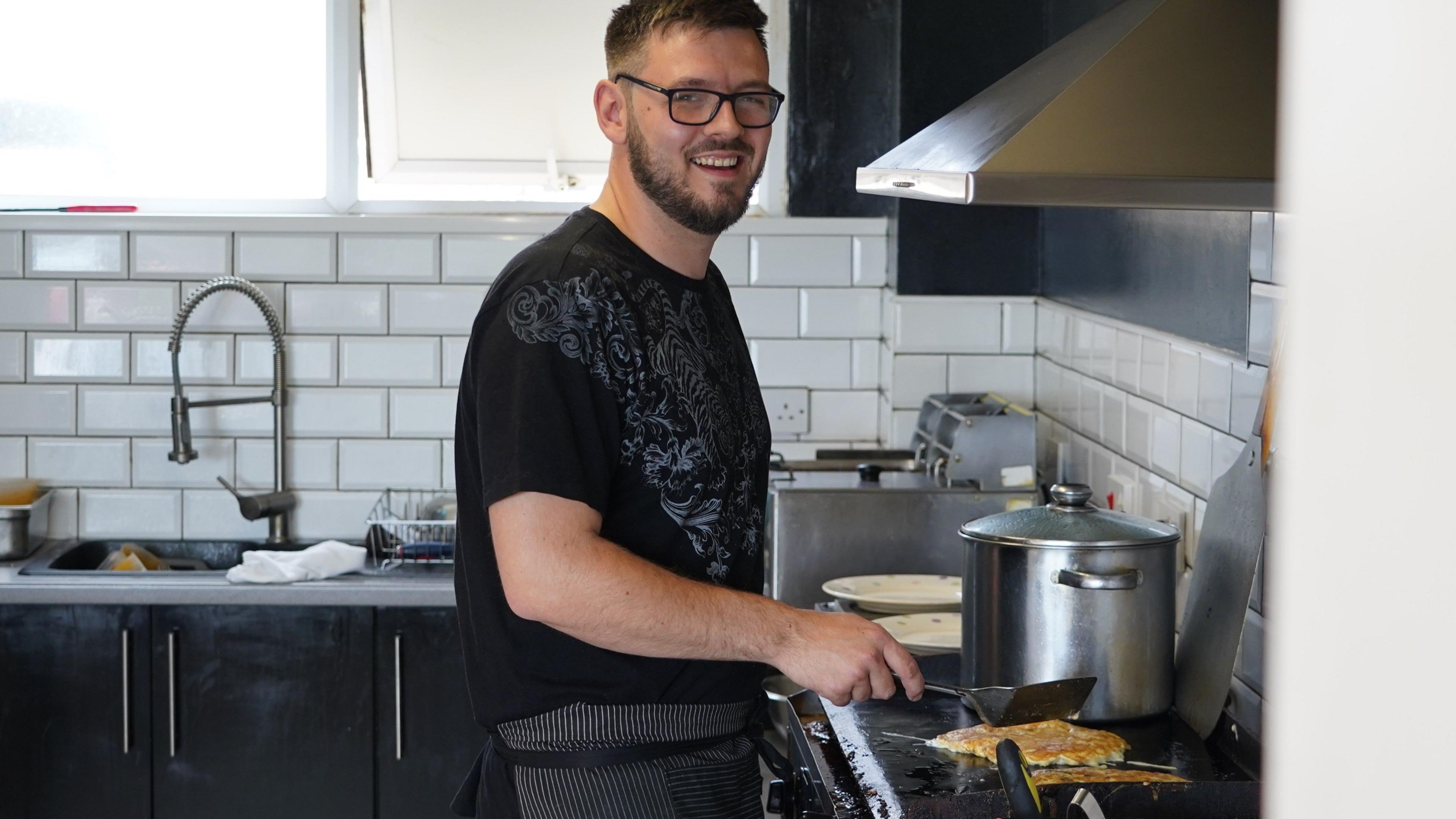
Alex Rowbotham has been a co-owner of Tastee for more than 18 months
Co-owner Alex stands behind her, taking an order from their JustEat computer over to the sizzling flattop.
My breakfast is laid down on the green table cloth on one of only two tables in the café as we chat.
Life for him has been tough recently and he’s feeling the pinch.
He is the only earner in his family, with him desperate to give his kids, aged five and 18 months, “the happiest life possible”.
But he tells me a “stupid mistake” when he was 17, involving him financing an expensive car, has left him with a poor credit score.
“I still feel the effects of it now. It means only my wife is on the mortgage.
"Life is stressful innit, we’re living month-to-month,” the 33-year-old explains.
He has cooked lots of the cut-price breakfasts in the last two years – so many he has lost count.
“Is it worth 99p?” he laughs, as I run my knife around the now-clean plate.
“Older people love it, it’s just enough for them.”
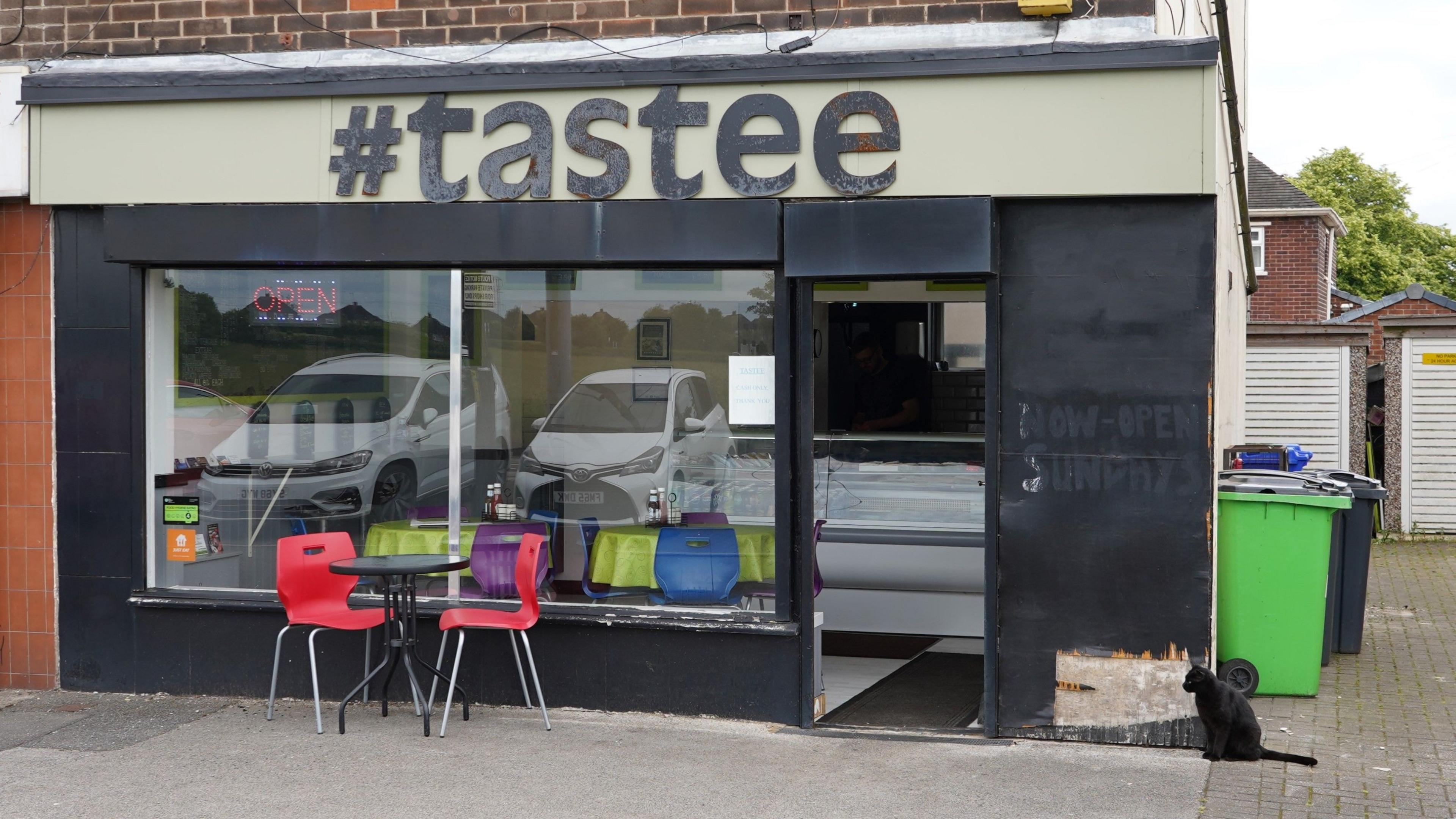
The café boasts two inside tables and a fridge packed full of sweet treats
The trams trundle past the café every six minutes, but the passing trade on their three-shop parade is minimal.
A lot of their business is done through delivery apps, but they have seen a huge impact from deals on rival platforms almost wiping out their orders on occasional weeks.
As Nadine leaves to go and see her daughter, Paul Jones arrives, here to deliver the meat for the business.
Dressed in his blue overalls, he disappears into the back room with an armful of white boxes.
He has seen the effect of the cost of living crisis, but he thinks things seem to be stabilising.
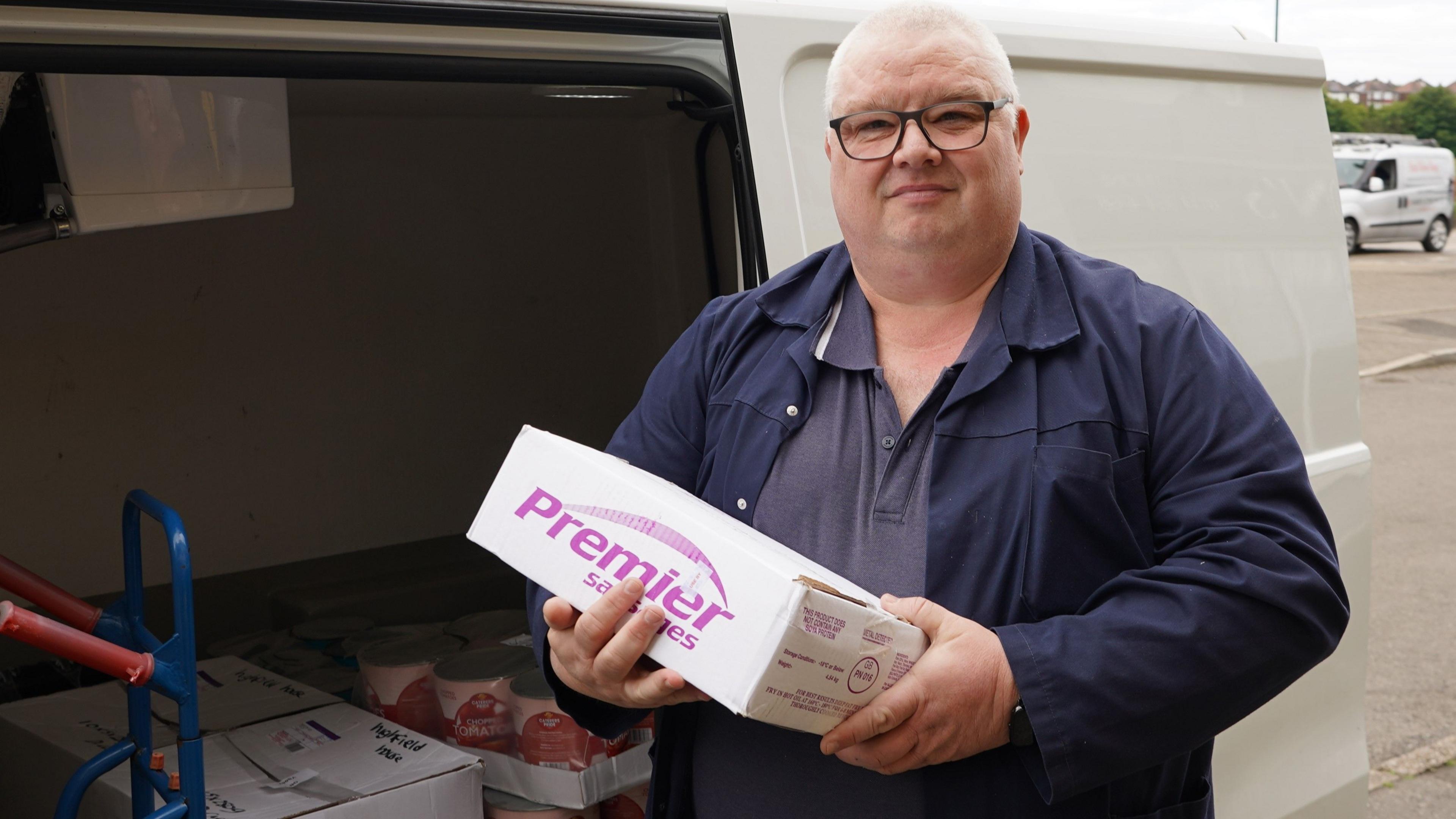
Paul Jones has seen prices for the food he delivers rise week-on-week
“Last year was appalling. Every time we had a delivery of sausages it went up by 50p.
"All that gets passed on to the customer.
“Some businesses have since gone bust that I’ve been delivering to.”
It’s been a quiet morning.
The first sit-down customers are Jenny and her husband – who order the number one – a full English breakfast with toast.
They sit by the open door, with her walking stick placed on the window sill.
“Normally I follow the election, but this year I haven’t,” Jenny says, screwing up her face.
“They all promise you one thing and nobody delivers.”
She will vote, “because if you don’t, you don’t have a voice”.
They used to go out for breakfast three or four times a week after she retired a few years ago.
Now, the cost of living has knocked that back to once a week. Their “treat time”, she says.
As she piles her fork with beans, I ask what she wants from the next government.
“Not to make idle promises.
"Not asking for more money, we know there’s nothing left and we don’t know where it’s gone. It’s a look-after-yourself world at the moment,” she adds.
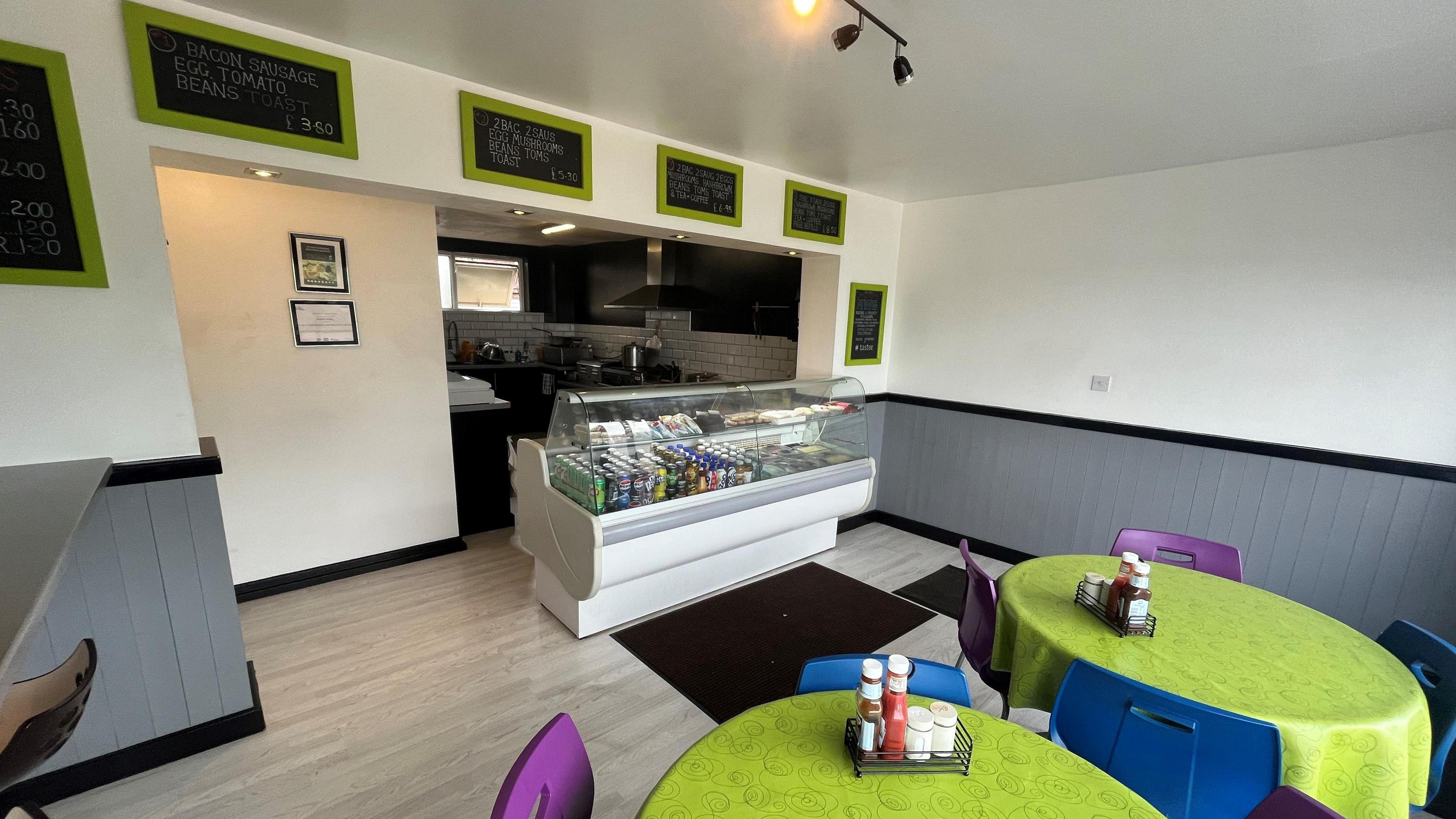
The café relies on a mix of online and in-store orders
Bricklayers Tom Green and David Hunter have just arrived in their van, with the pair ordering omelette and chips after a morning on a building site.
David says he is “lucky” as he earns a “decent wage”. Work has been busy too, flat out, he adds.
But he knows it has been tough for others.
“Everybody else’s side work has slowed down because people can’t afford to buy houses.
"Prices have dropped on the bricks, which is affecting everyone,” he says.
He has noticed supermarket prices going up and shrinkflation – where you get less of a product for the same price.
“I worry for people on lower incomes. Younger families, with kids. I’m a single bloke with one income, I’m not as bad,” 30-year-old Tom says.
'Can't be trusted'
Back over at the grill, Alex admits he does not know his MP, or who is standing in the upcoming election in Sheffield South East.
He feels politicians “are not relatable” and can't be trusted to tell the truth.
But he knows he does want change in the education system from when he was at school 20 years ago, following his costly mistakes as a teenager.
“I’d like money skills to be taught in school,” he says, after his credit mess kept him up at night.
Since then, he has gone to college to learn accounting.
The lunch rush starts to build and it is clear people would rather get their sandwiches than talk politics.
I hand my empty plate back to Alex, who is now lining up orders.
“I wouldn’t mind five years of super hard times but I wouldn’t trust them that it’d only be a few years,” he says.
“Whoever gets in will put the country into huge debts again, and then they’d just get voted out.”
Full list of candidates standing in Sheffield South East:
Caroline Kampila - Conservative
Clive Betts - Labour
Hannah Nicklin - Green
Jack Carrington - Independent
Matthew Leese - Social Democratic Party
Muzafar Rahman - Workers Party
Sophie Thornton - Liberal Democrat
Follow BBC Yorkshire on Facebook, external, X (formerly Twitter), external, and Instagram, external. Send your story ideas to yorkslincs.news@bbc.co.uk, external